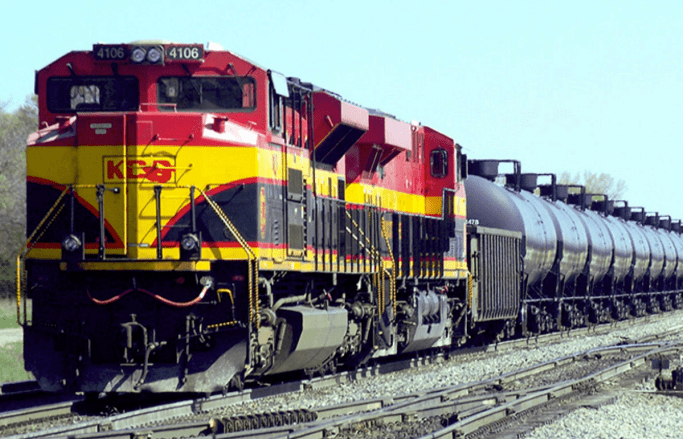Kansas City Southern (KCS) posted 4% year-on-year revenue growth in its Oil & Chemicals business in 2020, to $ 763.8 million.
These revenues increased $ 26.6 million compared to 2019, due to a 6% increase in cargo/unit volumes, partially offset by a 2% decrease in revenues per cargo/unit.
Volumes increased due to shipments of refined fuel products to Mexico.
Revenues per wagon/unit decreased due to shorter average transportation times, the weakening of the Mexican peso against the US dollar, and a lower fuel surcharge, partially offset by positive impacts on prices.
This group of commodities includes products such as chemicals, plastics, petroleum, liquefied petroleum gas, and refined petroleum products, such as gasoline and diesel.
KCS transports these products through its network and through exchanges with other rail carriers.
The raw materials groups of refined fuels and liquefied petroleum gas supply Mexican demand.
In general, chemicals and plastics are used in the automotive, housing, and packaging industries, as well as general manufacturing.
KCS transports petroleum products through its network, and as US oil refineries have continued to increase their refining capacity, they have coordinated with KCS to develop additional long-term storage opportunities that complement a petroleum operation. fluid freight railway.
KCS
Volume declines in the intermodal and automotive business units were due to auto plant closures and lower automotive production in Mexico as a result of Covid-19.
Furthermore, intermodal volumes decreased as a result of teacher protests.
Fracture sand and crude oil volumes within the Energy business unit decreased due to falling oil prices as the industrial and consumer business unit was affected by lower market demand as a result of Covid -19.
These decreases were partially offset by higher volumes in the Chemicals and Petroleum business unit mainly due to shipments of refined fuel products to Mexico.
For the year ended December 31, 2020, revenues per wagon/unit decreased 3%, compared to the previous year, due to the weakening of the Mexican peso against the US dollar, shorter average transportation duration and lower fuel surcharge, partially offset by positive price impacts.
Fuel
The average exchange rate of Mexican pesos per US dollar was 21.5 units for 2020, compared to 19.3 units for 2019, resulting in a decrease in revenue of approximately $ 43.0 million.
KCS Fuel Surcharges are a mechanism for adjusting revenue based on changes in fuel prices above the fuel price thresholds set in KCS rates or contracts.
KCS: financial indicators (millions of dollars)
Fuel surcharge income is calculated using a fuel price from a prior time period which can be up to 60 days prior. In a period of volatile fuel prices or changes in customers’ business combinations, changes in fuel expenses and fuel surcharge income may differ.
Fuel surcharge revenue decreased $ 89.4 million for the year ended December 31, 2020, compared to the prior year, primarily due to lower fuel prices and volumes.
![]()

